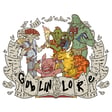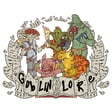
Episode 26: The Laughing Academy with Mike Lawton
Hello, Podwalkers, and welcome to the Goblin Lore Podcast!
In our twenty-sixth episode, Milwaukee Public Schools teacher Mike Lawton joins Hobbes, Alex, and Joe to discuss the education systems that exist in the Magic: the Gathering Multiverse and explain how he brings Magic to his students in the form of a high school gaming club. The guys discuss social-emotional development, how to get someone interested in playing the game, and what it means for young people to have representation in the media they consume.
This episode touches on the lore topics of the Tolarian Academies, Urza Planeswalker and Barrin, as well as a bit of minor speculation on other systems of education in the Multiverse.
____________________________________________
We have launched our new Patreon! You can join currently at the $1 tier, which gets you access to our private Discord server where you can talk all things lore, life, and love with other gob-heads like yourself.
____________________________________________
Remember: we've reached 300 followers on Twitter! Keep the word of mouth going; with every 100 new followers, we will do a random prize draw for one lucky follower!
____________________________________________
You can find the hosts on Twitter: Joe Redemann at @Fyndhorn, Hobbes Q. at @HobbesQ, and Alex Newman at @AlexanderNewm. Send questions, comments, thoughts, hopes, and dreams to @GoblinLorePod on Twitter or GoblinLorePodcast@gmail.com.
Goblin Lore is proud to be a member of the Geek Therapy Network (on Twitter at @GeekTherapy).
Opening and closing music by Wintergatan (@wintergatan). Logo art courtesy of Greg Staples, design by Joe Redemann.

